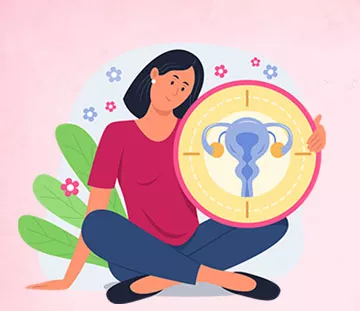Understanding IUI and Its Success Timeline
Intrauterine insemination (IUI) is a popular fertility treatment offering hope for couples experiencing infertility. Following IUI, many people are eager to identify early signs of success. Recognizing IUI success symptoms day by day can help alleviate anxiety and better understand what might be happening in your body. IUI involves inserting sperm directly into the uterus to increase the likelihood of fertilization. The timeline of IUI success symptoms is usually measured from the day of insemination. However, it’s important to remember that every individual’s experience is unique, and symptoms can vary widely.
IUI Success Symptoms Day by Day
Here’s a general guide of what some people might experience day by day post-IUI:
| Day | Symptoms |
|---|---|
| Day 1-2 | Minimal symptoms. It’s too early for implantation. Some people may feel slight cramping from the IUI procedure itself. |
| Day 3-5 | Possible mild cramping, bloating, or spotting as the embryo, if fertilized, begins its journey to implant in the uterus. |
| Day 6-10 | Implantation might occur within this period, causing symptoms like mild cramps, slight spotting (implantation bleeding), and increased fatigue. |
| Day 11-14 | Rising hormone levels may lead to classic early pregnancy symptoms like nausea, tender breasts, and frequent urination. By the end of this period, many people take a pregnancy test. |
Common Symptoms of IUI Success
Below are some symptoms of IUI success that may be experienced in the days following the procedure:
- Mild Cramping : Some people report cramping similar to menstrual cramps, especially if implantation occurs. This is a normal symptom and may happen a few days post-IUI.
- Spotting : Often referred to as implantation bleeding, light spotting can indicate successful implantation. This may occur around 6-12 days after IUI.
- Fatigue : Hormonal changes, especially increases in progesterone, can lead to tiredness and fatigue.
- Breast Tenderness : Breasts may feel sore or tender due to rising hormone levels.
- Mood Swings : Emotional fluctuations are common and might be due to increased hormone levels after conception.
- Nausea : Nausea, or morning sickness, might start as early as 10 days post-IUI but typically appears later.
When to Test for Pregnancy after IUI
It is generally advised to wait around 14 days after IUI before taking a home pregnancy test to allow for the most accurate result. Testing too early can result in a false negative due to low levels of hCG (the pregnancy hormone).
Key Factors Influencing IUI Success Symptoms
Various factors can influence the symptoms you may feel after IUI, including:
- Age : Women under 35 tend to have higher success rates with IUI.
- Health and Lifestyle : Healthy habits, such as a balanced diet, regular exercise, and avoiding smoking, may positively affect treatment success.
- Previous Fertility Health : A history of infertility conditions such as PCOS or endometriosis may impact IUI success and the occurrence of symptoms.
- Hormonal Medications : If used, medications like Clomid or gonadotropins may alter hormone levels and cause symptoms that mimic early pregnancy signs.
Recognizing IUI Success: Symptoms vs. Side Effects
It’s also essential to differentiate between true IUI success symptoms and potential side effects of fertility medications:
- Progesterone Effects : Medications may cause bloating, fatigue, or breast tenderness, which can be mistaken for early pregnancy symptoms.
-
OHSS (Ovarian Hyperstimulation Syndrome) : In rare cases, medications can lead to OHSS, causing symptoms such as abdominal pain, bloating, and nausea. If severe symptoms arise, consult your doctor immediately.
Signs to Contact Your Doctor
While most symptoms are mild, the following signs could indicate complications and should be addressed by a medical professional:
- Severe abdominal pain
- Heavy bleeding (more than typical spotting)
- High fever
- Severe bloating or nausea
How to increase your chances of a Successful Pregnancy after IUI
Increasing the chances of a successful pregnancy after intrauterine insemination (IUI) involves a combination of healthy lifestyle choices, stress management, and proper medical care. While IUI is an effective fertility treatment, taking specific steps can help optimize the chances of success.
1. Healthy Diet and Hydration
Nutrition plays a significant role in fertility. A balanced diet rich in whole foods, lean proteins, fruits, vegetables, whole grains, and healthy fats can support hormonal balance and reproductive health. Nutrients like folic acid, iron, zinc, and vitamin D are especially crucial for reproductive health. Omega-3 fatty acids, found in foods like salmon, chia seeds, and flaxseeds, can also improve egg quality and overall reproductive function. Staying hydrated is equally important, as proper hydration aids blood flow to reproductive organs.
2. Regular Physical Activity
Maintaining a healthy weight and staying active contribute positively to fertility. For women, being underweight or overweight can disrupt hormonal balance and impact IUI success. Moderate exercise, such as walking, swimming, or yoga, is ideal for supporting overall health without overexertion. Avoid high-intensity workouts during the two-week wait, as intense activity might affect implantation.
3. Avoiding Harmful Substances
Certain substances can negatively affect fertility and early pregnancy. Smoking, excessive alcohol consumption, and recreational drugs should be avoided, as they can impair reproductive function and affect hormonal levels. Caffeine intake should also be limited, as excessive caffeine can have an impact on pregnancy outcomes. For individuals on medication, consulting a doctor about safe options during the IUI cycle is essential.
4. Reducing Stress and Practicing Relaxation
Stress can interfere with the body’s hormonal balance, making it harder to achieve a successful pregnancy. Practicing relaxation techniques like meditation, deep breathing, or gentle yoga can improve overall well-being and create a more favorable environment for conception. Emotional support from partners, friends, or support groups can also alleviate stress, making the process easier to handle.
5. Follow Medical Guidance for Hormone Levels
After IUI, some people may be prescribed hormones like progesterone to support implantation and early pregnancy. Following your doctor’s guidance on medication can help stabilize hormone levels and support a healthy environment for embryo growth. It’s also crucial to avoid testing for pregnancy too early, as this can lead to unnecessary anxiety.
6. Consider Timing and Cycle Monitoring
IUI success can be influenced by the timing of the procedure, which is usually done around ovulation to increase the likelihood of fertilization. Many people use ovulation kits or ultrasound monitoring to ensure that IUI is conducted at the ideal time. Working closely with a fertility specialist can help optimize timing and monitor any changes in reproductive health during the process.
7. Focus on Positive Lifestyle Changes Together with Your Partner
Since a successful pregnancy depends on both partners, men can also take steps to boost sperm quality and improve IUI success rates. A diet rich in antioxidants, regular exercise, and avoiding excessive heat (like hot tubs or saunas) can enhance sperm health, contributing positively to the outcome.
Experiencing IUI success symptoms can be exciting and nerve-wracking. Remember that every individual and cycle is unique. While some may notice IUI success symptoms day by day, others may not experience noticeable symptoms until a confirmed positive pregnancy test.
Pregnancy Calculator Tools for Confident and Stress-Free Pregnancy Planning
Get quick understanding of your fertility cycle and accordingly make a schedule to track it















